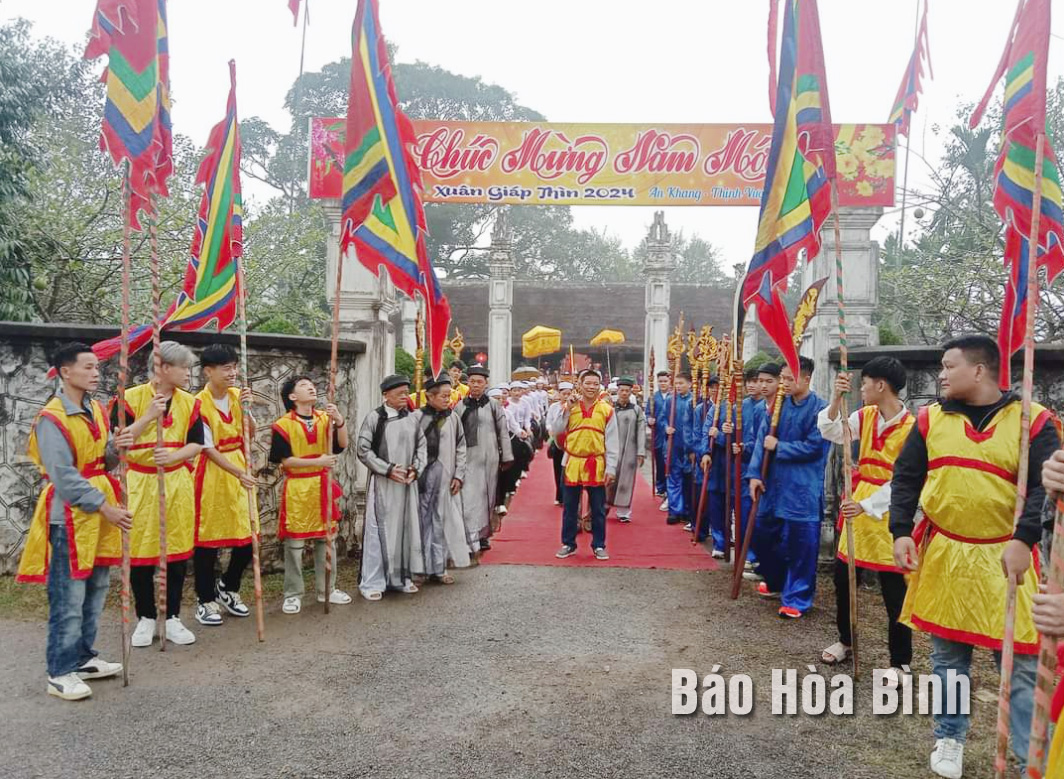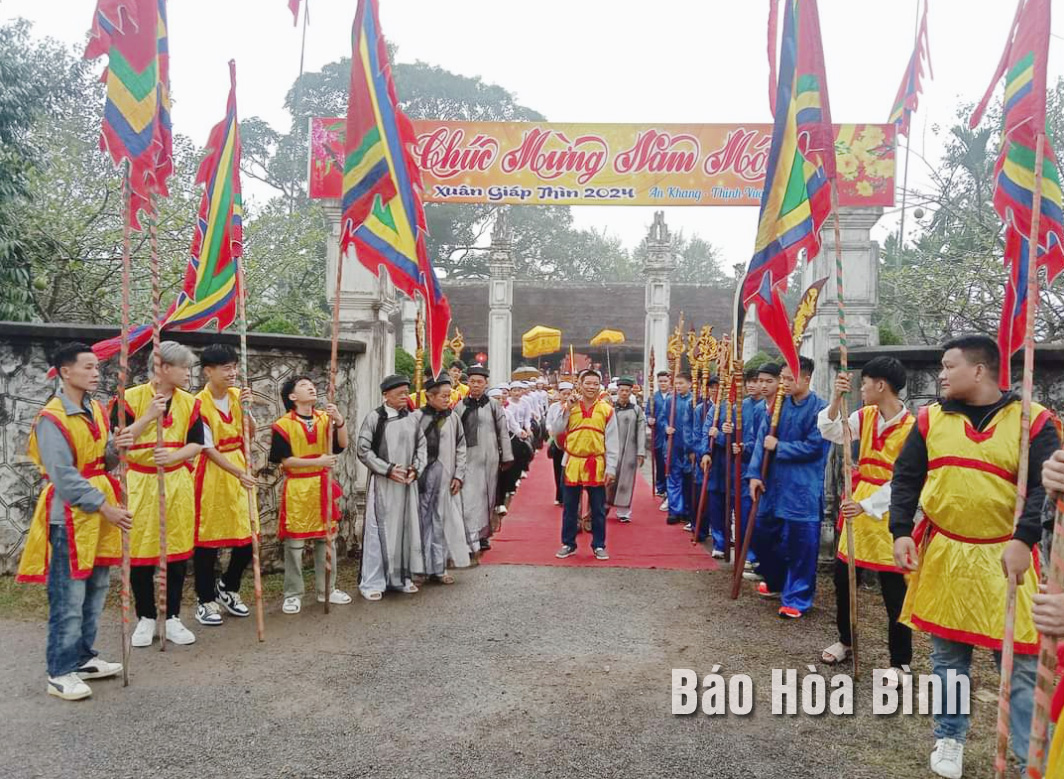
On February 15th (Lunar January 6th), Phu Lai commune, Yen Thuy district held the opening ceremony of the festival of Xam Xuan communal house during the Dragon Spring in 2024.

The palanquin procession at
the festival of Xam communal house in Phu Lai commune, Yen Thuy district.
Xam Communal House was
recognized as a provincial historical relic in 2003. The communal house was
built in the 5th year of Thieu Tri (1845), worshiping the Tutelary God as a
human god, the local people's customary name is Bui Van Khu (i.e. Do Khu). with
his wife, the Princess Thien Tinh. Currently, Xam communal house still preserves
11 ordained identities.
Xam communal house festival
takes place for 3 days, from February 15th – 18th (i.e.
Lunar January 6th – 8th). The festival consists of 2
parts: the ceremony part and the festival part. The ceremony includes the rice
contest procession, the palanquin procession and the opening of the festival;
The festival part includes the cultural and arts activities, and sports
competitions.
In 2013, Xam communal house
was built, renovated, embellished, and restored with a total cost of 11 billion
VND. The communal house is not only a place to worship the Tutelary God, the
village deity, but it is also a center of cultural activities associated with a
community of the residents characterized by Vietnamese wet rice civilization.
With an increasingly vibrant and widespread emulation movement aimed at building cultured residential areas and cultured families, Yen Thuy District has been making steady progress toward improving both the material and spiritual well-being of its people, while fostering a civilized, prosperous, beautiful, and progressive community.
Once lacking recreational spaces and community facilities, Residential Group 2 in Quynh Lam Ward (Hoa Binh City) has recently received attention for the construction of a new, spacious, and fully equipped cultural house. The project followed the model of state support combined with public contributions in both labor and funding.
The "All people unite to build cultural life" movement, which has been effectively integrated with Kim Boi district’s socio-economic development goals, is fostering a lively spirit of emulation across local residential areas, hamlets, villages, public agencies, and enterprises. In addition, through the initiative, traditional cultural values are being preserved and promoted, while community solidarity and mutual support in poverty reduction and economic development are being strengthened.
A working delegation of the Hoa Binh provincial People’s Committee led by its Permanent Vice Chairman Nguyen Van Toan on June 11 inspected the progress of a project to build the Mo Muong Cultural Heritage Conservation Space linked to tourism services in Hop Phong commune, Cao Phong district.
Born and growing in the heroic land of Muong Dong, Dinh Thi Kieu Dung, a resident in Bo town of Kim Boi district, in her childhood was nurtured by the sweet lullabies of her grandmother and mother. These melodies deeply imprinted on her soul, becoming an inseparable part of her love for her ethnic group's culture. For over 20 years, this love for her hometown has driven Dung to research, collect, and pass down the cultural values of the Muong people to future generations.
In the final days of May, the Ethnic Art Troupe of Hoa Binh Province organized performances to serve the people in remote, mountainous, and particularly disadvantaged areas within the province. These were not just ordinary artistic shows, but they were the meaningful journeys aimed at spreading cultural values, enhancing the spiritual life of the people and contributing to the preservation of ethnic minority cultural identities.



